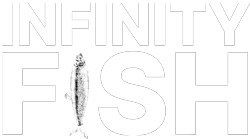Chapter 4
Making future generations count via discounting to ensure Infinity fish: A static model
”Count your granddaughter’s fish as her fish, not yours”
The valuation of the benefits derived by humans from the environment is a topical issue that continues to draw the attention of researchers in this area. This is because properly valuing such benefits is both difficult and crucial in helping society make rational decisions on how to trade-off different competing uses for these resources. This chapter focuses sharply on the effect of discounting on valuation and on the need to capture the true and total values from natural ecosystems. The effect of discounting on the flow of benefits is so strong that, in many instances, even very large values can be eroded enough with time to make future benefits insignificant to decision making today (Heal, 1998) (Weitzman, 1998). This chapter introduces an approach, called intergenerational cost– benefit analysis (CBA) first described in Sumaila (2004) (Sumaila, 2004) and upon which this chapter is based. The approach is then applied to assess the potential net economic benefits from marine ecosystem restoration. This concept is based simply on the argument that rather than value the benefits of restoration using the current generation’s time perspective (or discounting clock) as is done through conventional discounting, we need to use the time perspectives of both current and future generations (i.e., the discounting clocks of each generation). This will ensure that the benefits to people who will be eating fish in, e.g., 100 years from now are properly accounted for in CBA. In this way, the suggested CBA framework takes into account the full benefits of ecosystem restoration to both current and future generations.
View Chapters
Preface • 1 • 2 • 3 • 4 • 5 • 6 • 7 • 8 • 9 • 10 • 11 • 12 • 13 • 14 • 15 • 16 • 17
